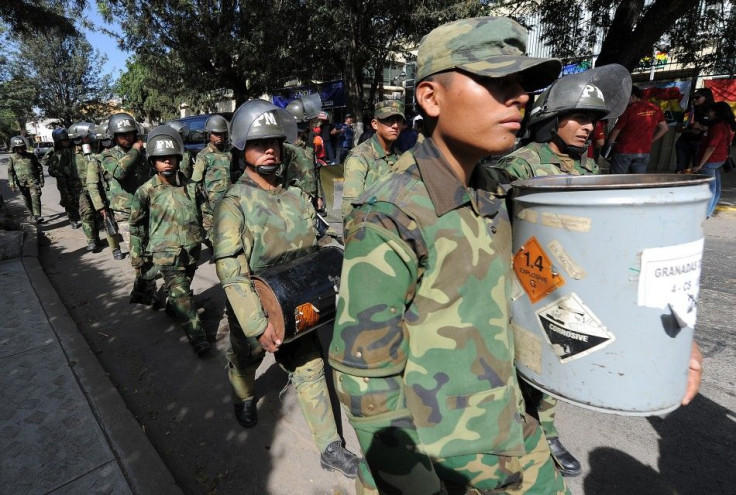Spain Demands Fair Price After Bolivia Seizes Electric Utility

Spain's chief economist said Wednesday that Bolivia will compensate Red Eléctrica Española the amount it invested in the country's electricity network after the South American country announced it would expropriate the local unit of the Spanish utility, Transportadora de Electricidad SA.
On his arrival in Brussels, Economy Minister Luis de Guindos nevertheless condemned the move, telling the Spanish daily El Mundo it was essential to maintain legal certainty in the investment process in countries like Bolivia.
The expropriation move in Bolivia, which isn't its first in recent years, has led to speculation the nationalization bug might spread from Argentina, where the government has implemented a number of public interventions of private capital in recent years. Bolivia justified the expropriation by saying the Spanish company hadn't invested enough in Bolivia's development.
Madrid is trying to determine what it considers a fair price for the takeover. Red Eléctrica Española company officials have yet to comment but were expected to make a statement defending its Bolivian electricity development strategies.
Shares in Red Eléctrica de España S.A. lost 1.59 percent to €31.96 on Wednesday. The company is 20 percent owned by the Spanish government.
Populist Bolivian President Evo Morales's May Day announcement follows a similar move in Argentina, where President Cristina Fernandez de Kirchner announced last month her government would seize a majority stake in YPF SA, the local unit of Spain's Repsol YPF SA. (ES: REP). The company is demanding $10.5 billion, but the Argentine government has said it would decide itself how much it would pay.
De Guindos said there was no relationship between the actions in the two countries, nevertheless there are similarities.
In Argentina, Kirchner accused Repsol of not doing enough to invest in boosting output, thus forcing the country last year to double oil imports. Likewise, the Bolivian president in his Day of the Workers speech Tuesday criticized the 1997 privatization of the power grid, saying that since then the Bolivian government has invested $220 million while the private sector has only chipped in $80 million.
In 16 years, the private sector has invested only $5 million a year (in the electrical sector), Morales said in his speech on Tuesday, as Bolivian troops peacefully occupied Red Eléctrica's facilities.
Morales has been on a years-long push to nationalize his country's energy, water and telecommunication sectors. On May Day 2010, Morales announced government control of the country's hydroelectric plants and most of the electrical grid.
Bolivia, which is one of the Western hemisphere's poorest countries and whose economy is largely subsistence based, has underutilized hydroelectric potential requiring considerable foreign direct investment to realize. It also has large reserves of oil and gas, as well as various metals, like tin.
(Morales) knows his limits, Joao de Castro Neves of the Eurasia Group told the Washington Post. The Bolivian state doesn't have the capacity to take over all these sectors (including mining) and maintain the high levels of investment they need.
© Copyright IBTimes 2024. All rights reserved.












